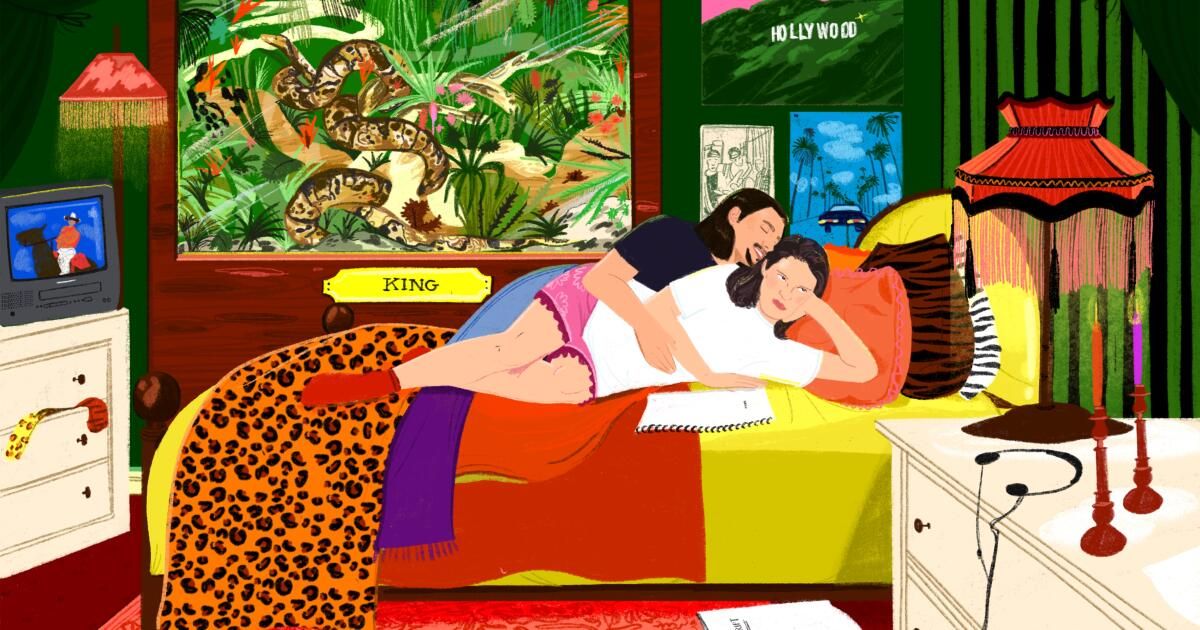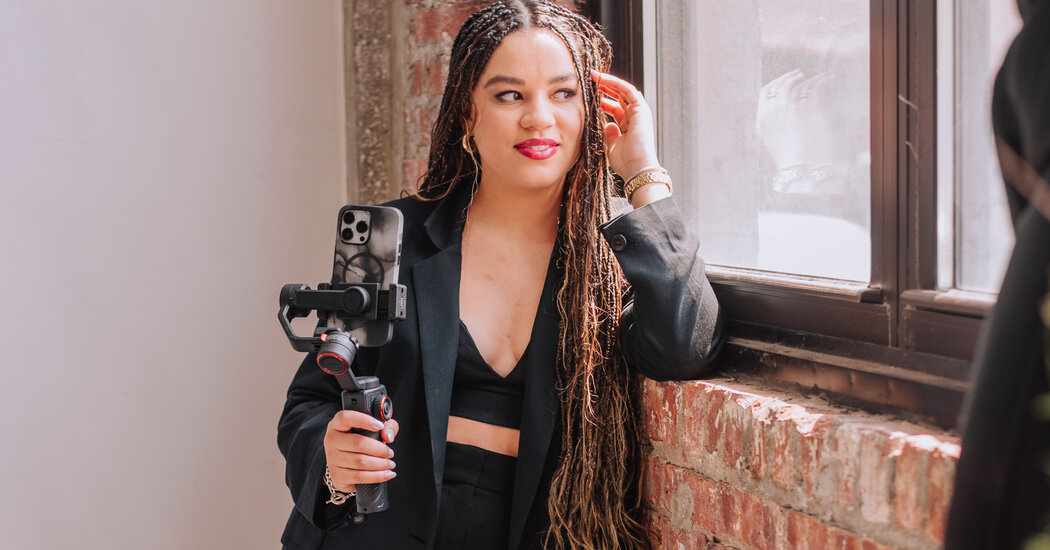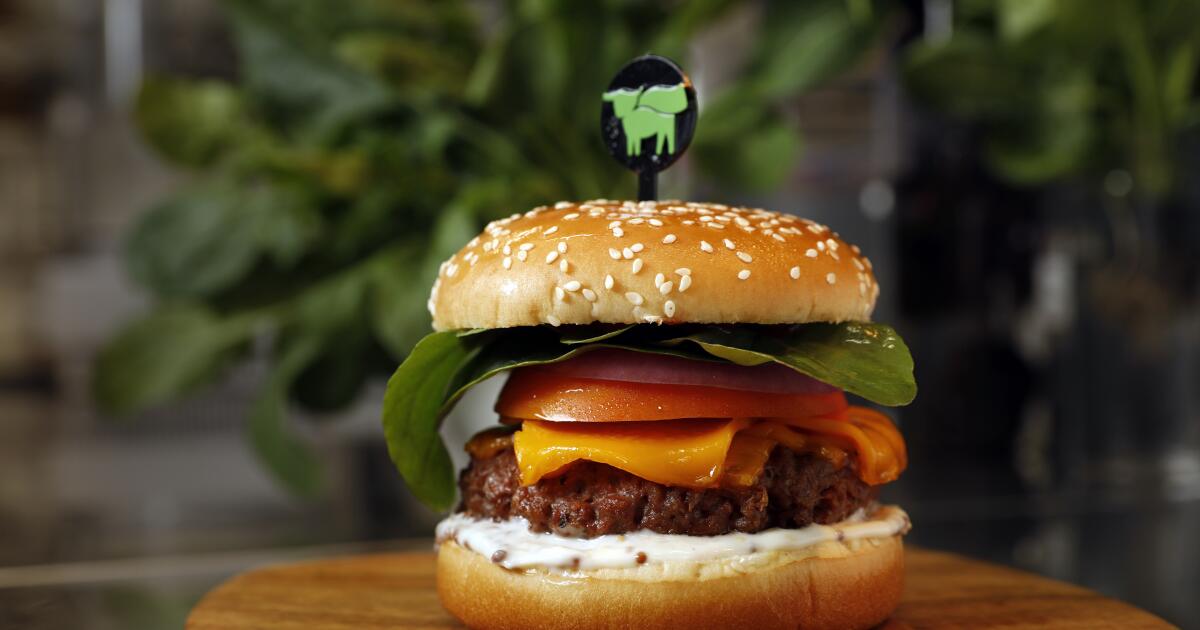When I read the news that Silver Lake's Tropical Cafe had abruptly closed, memories flooded back: memories of a time, a place, and a boyfriend. I met John in a dimly lit Los Feliz duplex, at one of those “friends of friends” parties I frequented during my first year in Los Angeles.
He was tall, soft-spoken, and had long brown hair that reminded me of Jim Morrison. His eyes wouldn't let me go, and soon we were locked in the bathroom, with John whispering poetry to me among the candles and scarf-covered lamps.
He was a welder who helped build the Getty Center, and I was accepted into the Directors Guild of America's training program, an apprenticeship that placed me on film and television shoots for about two years. John wasn't my type, although at 22, my spotty dating history didn't exactly mean he knew my type. He kept a huge python named King in his bedroom. He told me without irony that he owned eight guns that he disassembled and hid in his Silver Lake bungalow. Our attraction was intense, the sex tinged with an air of danger.
John introduced me to Los Angeles. Silver Lake and Los Feliz were our playground. We start every Sunday with café con leche and guava pastries at Café Tropical. We watched movies at the Vista and drank at the Smog Cutter, and John took me to sweaty punk shows at Spaceland. Our late nights always ended at the Ranch, an old-school Hollywood house behind the old Albertsons on Melrose Avenue and Vine Street, packed with John's partying friends.
John was light years away from my stuffy East Coast upbringing and my liberal arts college friends. I imagined myself as two characters in a Beastie Boys video, especially when we dressed up and had a date night at Netty's on Silver Lake Boulevard.
That part of Los Angeles in the mid-1990s was its own ecosystem. “Swingers” was about to turn my neighborhood into a hipster paradise, but before that, you could rent a two-bedroom apartment on Los Feliz Boulevard for a bargain. I used the Thomas Guide to explore the sprawling streets of Los Angeles, but John was my guide for everything else: where to eat, where to drink, and how to find community in this fragmented city.
John actually grew up in Los Angeles. He told me stories about how he lived in a loft downtown, where he used to shoot rats in the alley from his window. One night, he took me to a rave on a deserted stretch of Jefferson Boulevard, where we danced inside a huge warehouse among twisted metal sculptures.
He also insisted that he couldn't live in Los Angeles without driving the entirety of Mulholland Drive, so we spent the entire day in his Bronco dodging motorcycles and tourists, savoring the views on each side.
Both my apprenticeship and my relationship with John became more serious, creating tension in my life. Working on set was all-consuming and John wanted every moment of my free time. He pushed aside any effort to see my friends. We always ended up with his at the Ranch. While I appreciated getting to know the iconic and hidden parts of Los Angeles with John, I chafed at his control.
Soon we were at a breaking point. John and I fought more than we didn't. His poetry turned into rants and sharing a bedroom with a snake stopped being sexy. Nights at the Ranch lost their punk-rock charm, as if someone suddenly turned on the lights at closing time.
John pestered me about my schedule, implying that I was ignoring him in favor of my career. I graduated from my production training program and was offered a great position on a film that was supposed to be “the next big thing.” Despite my outward success, I was confused, exhausted, and needed space to clear my head. Something had to give.
When my best friend from college called me and told me she was going to spend the summer organizing service worker unions in rural Ohio, I saw my chance. I turned down the movie, broke up with John, and left town. I put my dreams on hold in Los Angeles for a few months, getting the time and distance I needed to get over John and recommit to my career.
When I returned in August, I set about rewriting my story in Los Angeles: in Dresden, at the House of Pies, and on the winding paths of the Griffith Observatory.
I built the career I wanted. I met my husband on set and I have a daughter who is discovering her own city. My younger self once swore I would never live west of La Brea Avenue. Now, my older self lives in Culver City and rarely returns to Silver Lake or Los Feliz. The area has changed and so have I.
My memories of that time and place are bittersweet. I miss the guava pastries at Café Tropical, I miss my twenties, and I miss the eternal promise of a night out in Los Angeles.
I don't miss John. But the only thing I really regret is turning down the job on that “next big thing,” a little movie called “Boogie Nights.”
The author is an assistant director/producer for television and film. He lives in Culver City and is writing his second novel. She is on Instagram: @metaval_la
Los Angeles Affairs chronicles the search for romantic love in all its glorious expressions in the Los Angeles area, and we want to hear your true story. We paid $400 for a published essay. Email [email protected]. You can find shipping guidelines. here. You can find previous columns. here.












